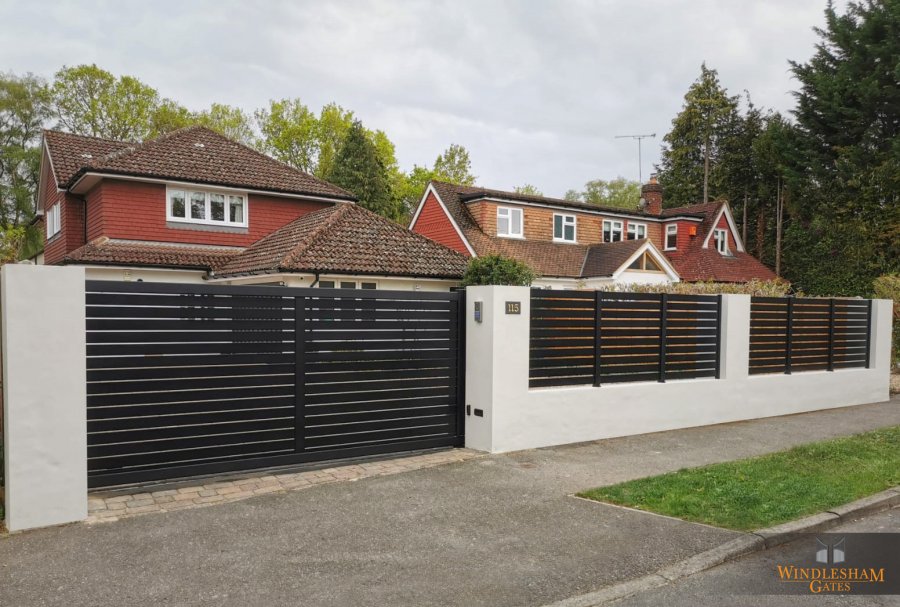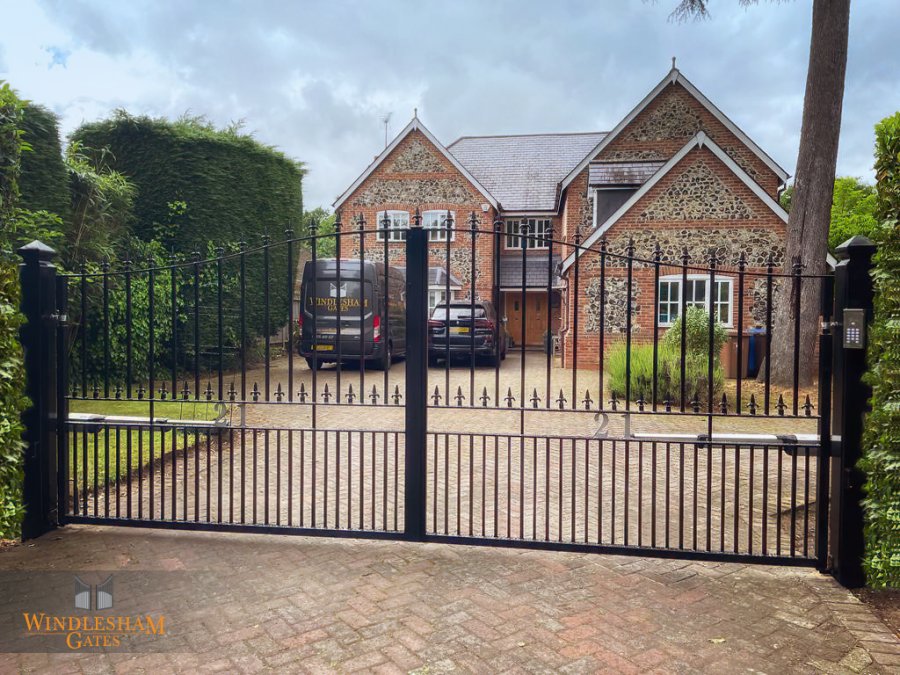When it comes to enhancing your property’s security, convenience, and aesthetic appeal, installing electric gates is an excellent investment. However, proper planning and understanding of the associated costs are crucial for a successful implementation.
Planning for electric gates and provide insights into the expenses you can expect along the way.
Step 1: Assess Your Requirements and Property
The first step in planning for electric gates is to assess your specific requirements and the layout of your property. Consider factors such as the desired level of security, the frequency of use, and the available space for installation.
Additionally, evaluate the terrain, driveway slope, and any potential obstacles that may affect the gate’s operation.
By carefully assessing your needs and property, you can determine the appropriate type of electric gate, whether it’s a swing gate or a sliding gate, and the size that best suits your requirements.
This initial assessment will also help you identify any potential challenges or additional costs that may arise during the installation process.
Step 2: Choose the Gate Material and Design
One of the most exciting aspects of installing electric gates is selecting the material and design that aligns with your personal preferences and the property’s aesthetic.
Two of the most popular choices are wooden gates and wrought iron gates, each offering unique advantages and costs.
Wooden electric gates (costs for electric gates) are renowned for their natural beauty and warmth. They can be easily customized to match your architectural style and can provide a high level of privacy.
However, wooden gates require regular maintenance, such as sealing and staining, to protect them from weathering and pests.
The cost of a basic wooden gate installation can range from £3,000 to £5,000, while high-end options with advanced features can reach £10,000 or more.
On the other hand, wrought iron electric gates (metal gates) are known for their durability, security, and low maintenance requirements. These gates can withstand harsh weather conditions and offer a clear view of your property.
While wrought iron gates can be more expensive upfront, with basic installations ranging from £4,000 to £6,000 and high-end options exceeding £12,000, they can be a long-lasting investment.
Step 3: Consider Additional Features and Automation
Modern electric gates offer a range of additional features and automation options that can enhance their functionality and convenience.
Examples include intercom systems, keyless entry, smartphone integration, and advanced safety sensors. While these features can significantly increase the overall cost, they can also provide added security and convenience for you and your family.
When planning for electric gates, consider which features are essential for your needs and budget accordingly. It’s important to strike a balance between functionality and cost-effectiveness.
Step 4: Factor in Installation and Maintenance Costs
Apart from the gate itself, it’s crucial to account for installation and maintenance costs in your planning process.
The complexity of the installation can vary depending on factors such as the need for groundwork, electrical wiring, and site modifications.
Professional installation costs can range from a few hundred pounds to several thousand, depending on the project’s scope.

Additionally, regular maintenance is essential to ensure the longevity and safe operation of your electric gates.
This includes routine servicing, replacement of worn parts, battery replacements (if applicable), and cleaning or repainting the gates as needed.
Expect to budget for ongoing maintenance costs, which can range from £100 to £300 or more per service, depending on the complexity of your gate system.
Step 5: Obtain Necessary Permits and Approvals
Before proceeding with the installation of electric gates, it’s crucial to obtain any necessary permits and approvals from local authorities.
In some areas, there may be specific regulations or guidelines governing the installation of automatic gates. Failure to comply with these regulations can result in fines or even the forced removal of the gates.
It’s advisable to consult with a professional gate installation company or your local authorities to ensure you have all the required permits and approvals in place before commencing the project.
Step 6: Choose a Reputable Company
Once you have a clear plan and budget in place, it’s time to select a reputable installation company. Look for companies with extensive experience in electric gate installations, positive customer reviews, and a track record of quality workmanship.
A professional installation company will not only ensure a safe and compliant installation but can also provide valuable guidance and recommendations throughout the planning process.
They can help you navigate any potential challenges and ensure that your electric gates are installed correctly and operate smoothly.
Step 7: Costs for Electric Gates
To help you better understand the potential costs involved in installing electric gates, here’s a breakdown of typical expenses:
- Basic single or double swing gate installation: £2,000 – £6,000
- Basic single or double sliding gate installation: £2,500 – £7,000
- High-end swing or sliding gate with advanced features: £6,000 – £15,000
- Additional features (intercom, keyless entry, safety sensors): £500 – £2,000 or more per feature
- Installation costs: Varies based on complexity, typically ranging from a few hundred to several thousand pounds
- Maintenance costs: £100 – £300 or more per service, depending on the gate’s complexity
It’s important to note that these figures are approximate and can vary based on factors such as the gate’s size, materials, and the specific requirements of your project.
Final Thoughts
Planning the implementation and budgeting for electric gates (automatic gates) requires careful consideration of your specific needs, property layout, and desired features.
By following these steps and consulting with professional gate installation companies, you can ensure a smooth and successful implementation process.
Remember, investing in electric gates (aluminium gates) not only enhances your property’s security and convenience but can also increase its overall value and curb appeal. With proper planning and budgeting, you can enjoy the benefits of electric gates for years to come.
